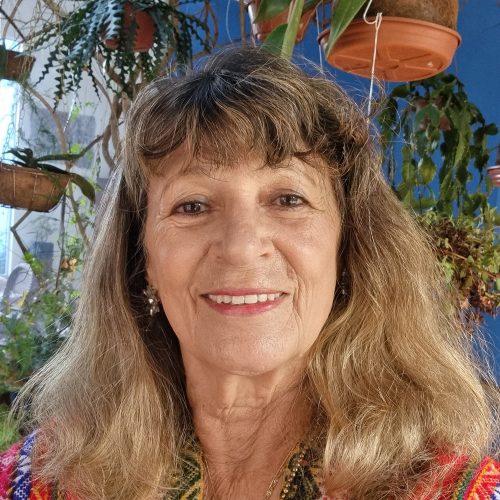Professor Ana Suelly Arruda Camara Cabral Graduated in Letters from the Université Regional do Nordeste (1974), graduated in Fines Arts from the Université de Paris I (Panthéon-Sorbonne) (1978), Master in Letters from the Université de Paris III-Sorbonne-Nouvelle, 1976), Master in Aesthetics of Art from the Université de Paris I, Panthéon-Sorbonne (1979), Ph.D. in Linguistics from the University of Pittsburgh, PA (1995); held a postdoctoral internship in Historical Linguistics at the University of Brasília, under the supervision of Aryon Dall’Igna Rodrigues. She was a researcher at the Fundação Nacional Pró-Memória (1983-1996), where she acted as a representative of indigenous education projects within the scope of the “Projeto Interação” and contributed to the research of a television program in the series “Brasil Corpo e Alma” (TV GLOBO), coordinated by the Roberto Marinho Foundation and the Pró-Memória Foundation. Professor Arruda Camara Cabral coordinated the Nucleus for Studies on the Amazon (NEAz) of the Center for Advanced Multidisciplinary Studies (CEAM-UnB) and served as Vice-Director of the Institute of Letters at the same University. She had been Abralin’s first secretary (2001-2003) and coordinator of ANPOLL’s Working Group on Indigenous Languages (2000-2001, 2001-2003). She is currently a Full Professor at the Department of Linguistics, Portuguese and Classical Languages at the Institute of Letters at the University of Brasília, where she works at undergraduate and graduate levels. At the Instituto de Letras, she also works as coordinator of the Laboratory of Indigenous Languages and Literature (LALLI) and as editor of the Brazilian Journal of Anthropological Linguistics (RBLA: https://periodicos.unb.br/index.php/ling/index).
To date, she has supervised 21 doctoral theses, co-supervised two others, and supervised 40 master’s dissertations. Professor Arruda Camara Cabral has experience in Linguistics, with an emphasis on Indigenous Languages, working mainly on the following topics: linguistic description, historical linguistics, language contact, lexicography and dialect variation of Indigenous Languages, the teaching of Indigenous languages, and training of Indigenous research teachers of Indigenous languages. She dedicates herself mainly to the study of languages of the Tupian linguistic stock, of the Macro-Jê linguistic stock, of languages of the Aruák family, and of the Kokáma language.



